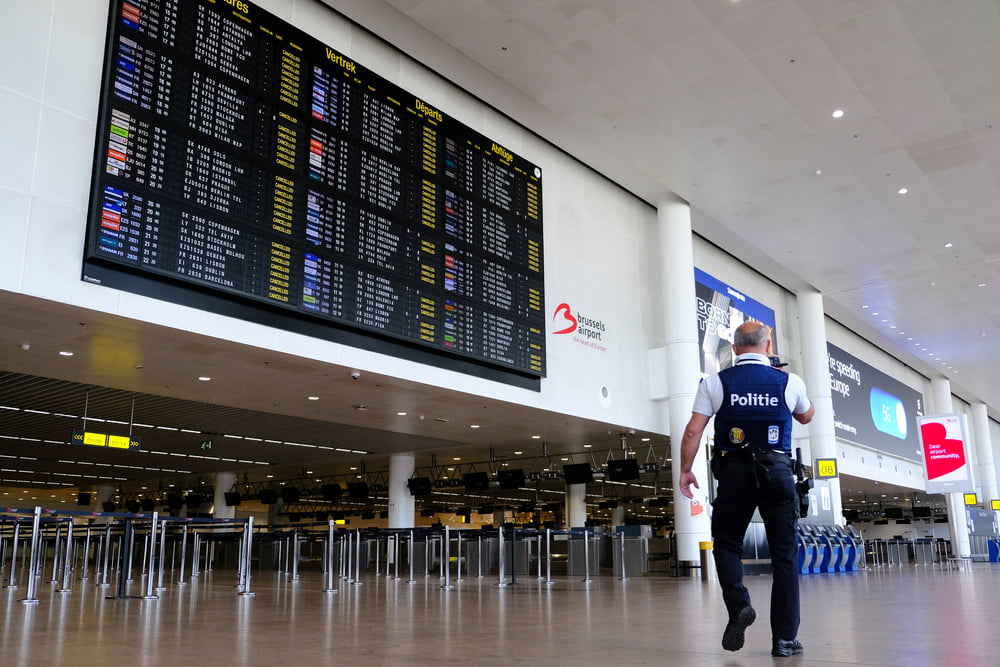In this first month of 2022, Brussels Airport welcomed more than 800.000 passengers, an increase of 183% compared to January 2021, but still a decrease of 52% compared to the same period before the crisis (January 2019). A month that could take advantage of the Christmas holidays on the one hand, but on the other it had to deal with stricter sanitary measures at European level. In freight transport, growth continues with an increase of 4% in total transported volume compared to January 2021.
Passenger traffic: an increase of 183% compared to 2021
In January, Brussels Airport received 800.518 passengers, an increase of 183% compared to January 2021 (a month with strict travel restrictions) and a decrease of 52% compared to the same period before the crisis (2019). The Christmas holiday had a positive impact on passenger numbers in January, mainly due to the many travelers returning from holiday. The result is a relatively large difference between the number of departing passengers (363.583) and arriving passengers (436.935). The number of transfer passengers is 19,5%. This is 1,5% lower than in 2019 due to the stronger recovery of local traffic compared to transfer traffic.
Passenger numbers were again under pressure this month due to the worsening epidemiological situation in Europe and imposed travel restrictions and testing obligations. The ban on flights to Morocco also negatively affected the monthly results. Fortunately, this ban has been lifted since February 7.
The ten most visited countries in January were Spain, Germany, Italy, Portugal, Turkey, France, the United States, Switzerland, the United Arab Emirates and the United Kingdom, respectively. Spain, Portugal and the United States showed exceptionally good results compared to 2019. The ten most popular destinations were Madrid, Barcelona, Lisbon, Malaga, Tenerife, Dubai, Alicante, Geneva and Frankfurt. Both Malaga and Tenerife recorded passenger numbers comparable to 2019.
In the coming months, Brussels Airport can prepare for the return of four airlines that had suspended their flights at the start of the Covid-19 pandemic: Delta Air Lines, Air Transat, CSA Czech Airlines and Ukraine International Airlines.
Cargo: 4% increase in volumes compared to 2021
In January, freight transport at Brussels Airport grew by 4% compared to January 2021, and even by 10% compared to January 2019, before the crisis. The month of January was particularly busy due to the high demand for air freight. This phenomenon is partly due to the disruption of global goods supply chains.
Compared to January 2021, the growth of freight transport has mainly continued in the full freight segment (+24%), but also in freight transport on board passenger flights (+51%), as a result of the strict travel restrictions in force at the time and the associated decrease in the number of passenger flights. However, express services declined by 25%, following the strong and constant growth of recent months. This also applies to trucked air freight, which shows a drop in volume of 8% compared to January 2021.
In terms of volumes, Asia remains the most important region, followed by the Americas. The transport of vaccines to and from Brussels Airport continued unabated. Since the start of vaccine shipments in November 2020, a total of 900 million vaccines have been shipped. This confirms more than ever the role that Brussels Airport plays as the main pharmaceutical hub in Europe.
Flights
The total number of flight movements increased by 2022% in January 86 compared to 2021, to 10.585 flight movements (compared to 17.232 in 2019). The number of passenger flights increased by 149% compared to 2021, but remains at 52% of the number of passenger flights in January 2019, before the crisis. The average number of passengers per flight also amounted to 52% of the load factor in January 2019. In January of this year, the number of cargo flights grew slightly by 0,9% compared to 2021. The share of cargo flights carried out with passenger aircraft is declining, but it remains an important complementary connectivity solution for destinations such as Brazil, China and Japan, the airport said.
Also read: Brussels Airport signs for CO2-free aviation in 2050



